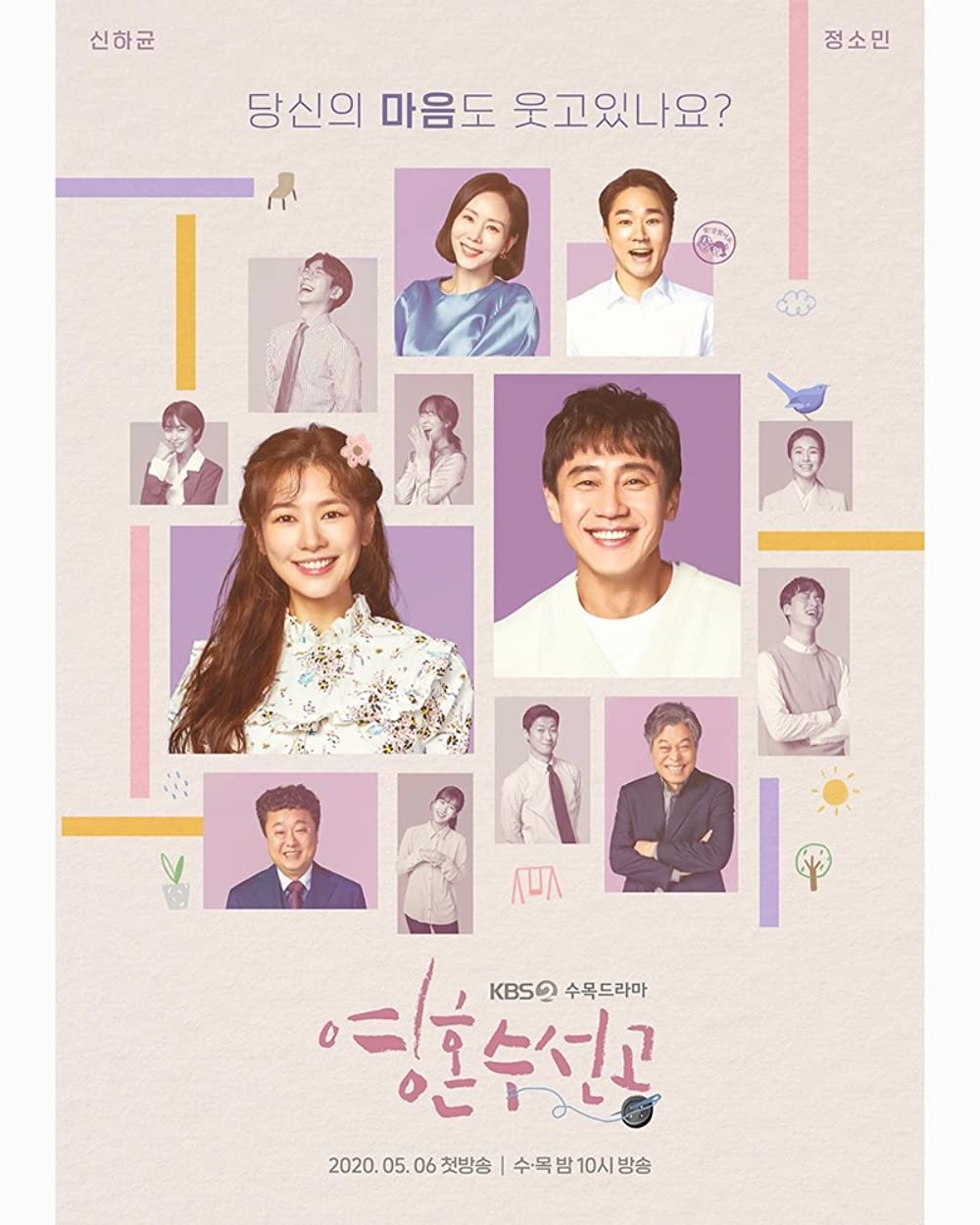
ENA / tvN
With the recent phenomenal success of the K-Drama "Extraordinary Attorney Woo" (starring Park EunBin and Kang TaeOh), series or films depicting mental pathologies are coming back to the fore. Many K-Dramas have tried the thorny exercise of interpreting a psychological or psychiatric illness, and some succeeded well.
We have selected ten K-Dramas that represent diverse and sometimes misunderstood pathologies. Let's take a look at this list!
1. "Good Doctor" = Autism Spectrum Disorder (ASD)
Synopsis: Being an autistic savant, Park ShiOn was able to finish medical school with distinction. He excelled in his field due to his exceptional medical skills, but he struggles with his interpersonal skills when it comes to interacting with his patients and superiors. However, his fellow doctors support him during his difficult times. With his exceptional skills and dedication, can Park ShiOn still be considered a great pediatrician due to his systemic discrimination and bias?
Cast: Joo Won, Moon ChaeWon, Joo SangWook, Kim MinSeo.
Autism Spectrum Disorder (ASD) is, according to Britannica, is "any of a group of neurobiological disorders that are characterized by deficits in social interaction and communication and by abnormalities in behaviors, interests, and activities. In 1911 Swiss psychiatrist Eugen Bleuler coined the term autism (from the Greek autos, meaning “self”), using it to describe the withdrawal into the self that he observed in patients affected by schizophrenic disorders. In the subsequent decades, several autism-like disorders also were identified, resulting in the group of conditions known as autism spectrum disorders, or ASDs."
Autism Spectrum Disorder (ASD) is a central subject in this drama since the main character has it. This drama had such a positive impact that it gave rise to an American adaptation of the same name. The negative point of this drama, however, is the absence of realism of certain interventions.
2. "It's Okay That's Love" = Schizophrenia
Synopsis: Although he is known for his work in the mystery genre, Jang JaeYeol is a bit of a prickly pear. During a talk show, he and psychiatrist Ji HaeSoo started to argue about their differences. Then, it appears that JaeYeol's friend plagiarized his work. Since, he has to lie to the media for a while so that he can then prove his innocence afterwards.
Cast: Zo InSung, Kong HyoJin, Sung DongIl, Lee KwangSoo.
Schizophrenia is, according to Britannica, is "any of a group of severe mental disorders that have in common symptoms such as hallucinations, delusions, blunted emotions, disordered thinking, and a withdrawal from reality. Persons affected by schizophrenia display a wide array of symptoms."
The main character is again affected by the disease, although one of the secondary characters is suffering from Tourette Syndrome. In addition, the drama addresses other themes such as sexual attraction, which remains quite taboo in Korea.
3. "It's Okay To Not Be Okay" = ASPD
Synopsis: A community health worker named Moon GangTae is blessed with many qualities, such as a great body, intelligence, patience, and the ability to sympathize with others. On the other hand, Ko MoonYoung, a popular children's literature author, is an arrogant, conceited, and rude person who has an antisocial personality disorder. The two fall in love despite their seemingly different backgrounds, and they eventually find their identities.
Cast: Kim SooHyun, Seo YeaJi, Oh JungSe, Park GyuYoung.
An antisocial personality disorder is, according to Britannica, is "a personality disorder characterized by a pervasive pattern of disregard for the feelings of others and often accompanied by violation of the rights of others through negligence or overt action. The disorder occurs in about 2 to 3 percent of adults; prevalence is significantly higher in prison populations. Behaviors linked to the development of antisocial personality disorder usually appear in childhood; examples include animal cruelty and an inclination toward setting fires."
The main character has ASPD, while Moon GanTae older brother is on ASD. A highly acclaimed drama, it was nominated for an Emmy Award in 2021.
4. "Kill Me, Heal Me" = DID
Synopsis: Cha DoHyeon was traumatized as a child, causing him to develop multiple personality disorders. Due to his condition, he now has seven distinct personalities. He asked psychiatrist Oh RiJin to help him regain control over his life, but she eventually fell in love with one of these personalities. His brother, Oh RiOn, who is a renowned mystery novelist, is also interested in learning more about DoHyeon's family.
Cast: Ji Sung, Hwang JungEum, Park SeoJun, Kim YooRi.
Dissociative Identity Disorders are, according to Britannica, is "mental disorders in which two or more independent and distinct personality systems develop in the same individual. Each of these personalities may alternately inhabit the person’s conscious awareness to the exclusion of others. In some cases, all of the personalities remain mutually unaware of the others’ existence. Usually, the various personalities differ markedly from one another in outlook, temperament, and body language and give themselves different first names. The various personalities may also exhibit different handwriting and electroencephalogram readings and perform differently on projective tests. This condition is not uncommon, with some 1–3 percent of the population estimated to suffer from the disorder."
The main character has seven personalities, which makes him the highlight of the drama. Indeed, many of the scenes are comical due to the apparent confusion of other characters who are unaware of the main character's pathology.
5. "The Girl Who Sees Smell" = Synesthesia
Synopsis: Officer Choi MooGak lost his sister to a murder case, causing him to lost the ability to feel pain, smell and taste. He then fell in love with a girl named Oh ChoRim. She is the only witness in the case and has a special sixth sense : the ability to see smells.
Cast: Park YooChun, Shin SaeHyeong, NamKoong Min, Yoon JinSeo.
Synesthesia is, according to Britannica, is "a neuropsychological trait in which the stimulation of one sense causes the automatic experience of another sense. Synesthesia is a genetically linked trait estimated to affect from 2 to 5 percent of the general population. Grapheme-color synesthesia is the most-studied form of synesthesia. In this form, an individual’s perception of numbers and letters is associated with colors. For this reason, in all the subject reads or hears, each letter or number is either viewed as physically written in a specific color (in so-called projector synesthetes) or visualized as a color in the mind (in associator synesthetes). Many synesthetes, however, have more than one type of synesthesia. Several types have been reported, ranging from music-color synesthesia to tactile-emotion synesthesia."
The two main characters are affected by pathologies and complement each other since the man has lost his senses, while the woman has an additional one. They then join forces in criminal cases.
6. "Clean With Passion For Now" = Mysophobia
Synopsis: Despite having good looks, Korean businessman and cleaning expert Jang SunGyeol suffers from severe mysophobia. He is obsessed with cleanliness and owns a cleaning company. However, he meets Gil OhSol, who is a carefree and untidy girl. OhSol has worked several part-time jobs while trying to find a full-time job, and she does not have the luxury to be clean. She gave up on being neat after she had faced the world's toughest challenges, and she's known for wearing a particular tracksuit. With the help of OhSol, SunGyeol is able to overcome his mysophobia and fall in love with her.
Cast: Yoon KyunSang, Kim YooJung, Song JaeRim, Go GeonHan.
Germaphobia is, according to Mantra Care, is "an excessive fear of dirt or contamination. This condition may cause people to wash their hands excessively and/or avoid contact with things that they think are dirty. Also called Mysophobia, it can make a person feel afraid of anything. Some research shows that the condition might occur due to genetics. That means if someone in your family has it, you are more likely to have it too. Experts believe it is because when you grow up with someone, you are exposed to the same things. Siblings at the same school have a higher chance of getting sick because they usually live together."
Adapted from a webtoon, we follow the main male character who suffers from this phobia. This disorder has been particularly prevalent since the COVID-19 crisis, with many people afraid of developing it.
7. "Extracurricular" = Sociopathy
Synopsis: The drama "Extracurricular" follows four high school students who get carried away by the money they earn by committing crimes. We follow JiSoo, who becomes a criminal after going from being a model to being caught in a crime. Next, the bully MinHee, who eventually gets caught up in the crime. GyuRi is JiSoo's partner in crime, Nam YoonSoo who is MinHee's boyfriend and lastly KiTae, the school's most popular guy.
Cast: Kim DongHee, Park JuHyun, Jung DaBin, Nam YoonSu.
Sociopathy is, according to Mantra Care, is "someone who has no empathy for others. They are unable to feel guilt or remorse and this makes them take advantage of other people without having any concern about the consequences that their actions might have on those around them. The same goes for animals as well – a person with psychopathy doesn’t care if they harm an animal or not. There are different types of sociopaths, but they all share the same basic characteristics: lack of empathy, inability to feel guilt or remorse, and a tendency to take advantage of others without any regard for their feelings of safety."
Sociopathy is not the main focus of the story, as student violence is core topic of this Netflix original drama.
8. "Soul Mechanic" = BPD
Synopsis: The story of Soul Mechanic revolves around the question of how one can cope with anger and the origin of happiness. It's about Lee SiJoon, a psychiatrist who is a deeply caring individual who tries to help his patients through unconventional and valiant efforts. Han WooJoo is a rising musical actress who is struggling with various mental issues and anger issues. Although her hard work on stage has paid off, she is still prone to experiencing mental breakdowns and anger outbursts.
Cast: Shin HaKyun, Jung SoMin, Tae InHo, Park YeJin.
Borderline Personality Disorder is, according to Britannica, is "a mental illness characterized by chronic instability in the affected individual’s mood, relationships, and sense of identity. Afflicted individuals, typically are impulsive, have unstable interpersonal relationships, and are prone to anxiety and feelings of abandonment. Antisocial behavior, an affinity for psychoactive substance abuse, an erratic lifestyle, a tendency for self-mutilation, and suicide attempts are common, and a sense of emptiness and meaninglessness prevails all along."
The psychiatrist does his best to teach the main character to live with her disorder in order to move towards the future more serenely.
9. "Healer" = PTSD
Synopsis: Night courier Seo JungHoo is known as "Healer" to his clients. He uses a hacker to get his clients whatever they want. His latest assignment sees him working for a second-rate tabloid journalist named Chae YoungShin and a successful reporter named Kim MoonHo. When he learns about his past with these two reporters, he begins to put them in danger.
Cast: Ji ChangWook, Park MinYoung, Yoo JiTae, Kim MiKyung.
Post-Traumatic Stress Disorder is, according to Britannica, is "an emotional condition that sometimes follows a traumatic event, particularly an event that involves actual or threatened death or serious bodily injury to oneself or others and that creates intense feelings of fear, helplessness, or horror. The symptoms of post-traumatic stress disorder include the reexperiencing of the trauma either through upsetting thoughts or memories or, in extreme cases, through a flashback in which the trauma is relived at full emotional intensity. It is normal to experience such reactions to some extent following trauma, and they are not considered symptoms of PTSD unless they last for at least one month or have a delayed onset. People with PTSD can also suffer from other psychological problems, particularly depression, anxiety, and drug abuse. The experience of traumatic stress is very common, and an estimated 10 percent of women and 5 percent of men experience PTSD at some point in their life."
For years, many dramas have tackled the subject of PTSD, and this one is just one example like any other. This disorder is revealed to be at the heart of the plot over the episodes, like a link uniting the characters.
10. "Be Melodramatic" = Depression
Synopsis: Lee EunJung, Im JinJoo, and Hwang HanJoo, are 30 years old bestfriends. HanJoo is a marketing manager for a drama production company, and she struggles to balance her work and her personal life as a single mother raising her kid. Drama writer JinJoo is known for her emotional ups and downs, and she often finds herself in conflict with her clients. Her personality is unique, and she talks about her expensive purse at times. EunJung runs a film production company, but she's the only employee and one of the her documentaries becomes surprisingly popular overnight.
Cast: Chun WooHee, Jeon YeoBeen, Han JiEun, Ahn JaeHong.
Depression is, according to Britannica, is "a mood or emotional state that is marked by feelings of low self-worth or guilt and a reduced ability to enjoy life. A person who is depressed usually experiences several of the following symptoms: feelings of sadness, hopelessness, or pessimism; lowered self-esteem and heightened self-depreciation; a decrease or loss of ability to take pleasure in ordinary activities; reduced energy and vitality; slowness of thought or action; loss of appetite; and disturbed sleep or insomnia. The distinctions between the duration of depression, the circumstances under which it arises, and certain other characteristics underlie the classification of depression into different types. Examples of different types of depression include bipolar disorder, major depressive disorder (clinical depression), persistent depressive disorder, and seasonal affective disorder."
Depression is also a regular topic in dramas. Here, one of the characters suffers from depression after a tragic event that has turned her life upside down.
Have you watched these K-Dramas? If not, we highly recommend them! Let us know your opinion in the comments.

Top 15 Greatest K-Dramas Of The DecadeKDRAMA STORIES May 18, 2022










































































































Comments